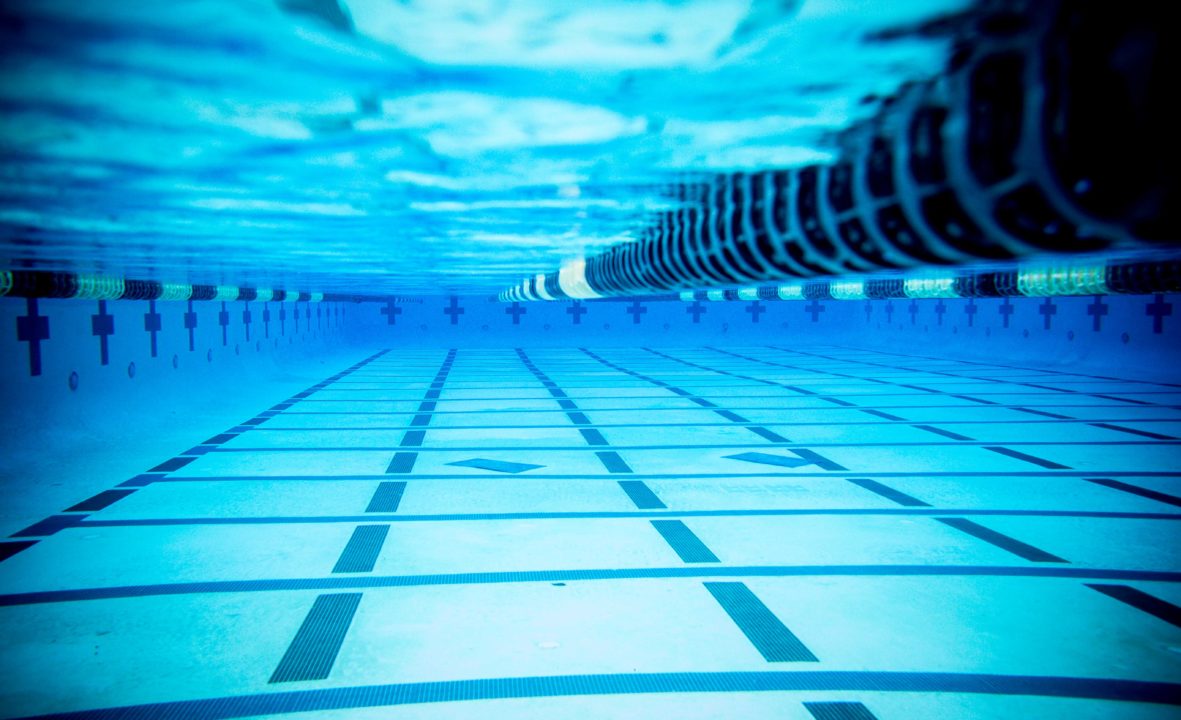SwimSwam welcomes reader submissions about all topics aquatic, and if it’s well-written and well-thought, we might just post it under our “Shouts from the Stands” series. We don’t necessarily endorse the content of the Shouts from the Stands posts, and the opinions remain those of their authors. If you have thoughts to share, please send [email protected].
This “Shouts from the Stands” submission comes from Alec Keblish, a …
“I wish there was a way to know you were in the good old days before you actually left them.”
When I started this sport, I had no idea what kind of roller coaster it would take me on. If I did, I find it hard to believe I would have kept up with it. That was 10 years ago. That was when practices were short, bedtimes were long, and we were all collectively trying to figure ourselves out both as swimmers and humans. That was when the idea of a flip turn, breaststroke pullout, or underwater kick was completely foreign to us. Whether we stuck with it or not, something about the sport differentiated it from every other activity we did, and for me, that something sent me on a winding road towards agony, triumph, and every emotion in between.
I still remember my first meet. My first race, even. It was a 25 breaststroke, and even though I couldn’t tell you a thing about it other than assure you it was slow, I remember the surge of adrenaline, even once the race was over, that kept me coming back for more. It was incredibly complex, and it took me a long time to put my finger on what exactly that feeling was; It wasn’t until I quit swimming a year later that I felt the absence of something. Again, it was a feeling well beyond my years, but some part of me knew that swimming was the common denominator, and when I got back in, I knew it was going to be for good.
Growing up surrounded by success in the pool at home, I took for granted much of what the sport has to offer. Until high school, truthfully, there were a lot of things about the sport that went over my head: that success doesn’t come naturally, and that hard work is called just that for a reason. The success that surrounded me seemed to evade me, and by the time I wrapped my head around why, I felt overwhelmed. It was frustrating; frustrating to come upon that awareness, frustrating to realize the only reason I was in that position were the things I did and (more likely) those I didn’t. I finally discovered the source of all the feelings that had previously gone unknown: confusion. Jealousy. Loneliness.
There’s a picture of me out there with two of my teammates at one of my first ever long course meets, and even though I’m out of the pool, my goggles are on. Not because I was about to get in the water, or I had just gotten out, but because I didn’t want the camera to show that I was crying. I was ten years old. Looking back, the cocktail of these emotions hurt me; it was the catalyst of simply not knowing that made it worse.
High school, in some way, was the start of my swimming career. While I had been in the sport for years, I hadn’t been a swimmer. I’d rarely, if ever, experienced the burn of a long set fading instantly after realizing the satisfaction of knowing you left it all in the water. I’d coasted through it, but not to any measure of success. As any true swimmer knows, coasting is swimming’s antagonist. But before I discovered this, I had thrown myself into high school practice. I don’t know how it happened, or why it happened the way it did, but one day, it all just clicked.
It sounds cliché; I know that. But the thing about clichés is that they exist because they’re true. And in my case, things did click. It was in the first two weeks of the season; it was after I had found my niche, but before I had become comfortable in it. One practice, I simply went faster than I had ever gone before, even in meets. I still don’t know whether it was that adrenaline rush coming back or the satisfaction of being some place other than last in the lane, but something sparked.
I quickly realized that it’s impossible to replicate that hunger every practice, but the one thing that can be replicated is an investment into our teammates. High school swimming was a change for me, and a welcome one, because it made the sport less about me and more about my team. No matter how skilled we are in the art of self-motivation, the comfort of knowing that somebody else is pulling for us will be a better stimulant every time. And it is addicting. From that point on, then, swimming became less of an activity and more of an addiction.
For the next four years, this addiction grew, and like the word connotes, it began to define my life. My good days were good because I was swimming well; my bad days were such because I wasn’t. I continued to invest in my teammates, and continued to grow my addiction to the point where I wondered if it was worth it nearly every day. Sure, I may have been coming into my own, but I started in a place that for some proved irredeemable. I was getting better faster, but I wasn’t sure it was fast enough.
At one championship meet, my last of my sophomore season, I made a deal with myself. I had a specific time in my mind, and if I went slower than that I was going to quit. If I went faster, it was a sign that I wasn’t done. The scoreboard gave me the news that my time wasn’t up just yet. It took a lot to stick with that decision. As anyone with more talented siblings knows, comparisons are hard to escape from. Whether it’s other swimmers telling you to step out of your sibling’s shadow, other coaches passing silent judgement when they see the name on your cap, or merely self-doubt inevitably creeping in, it never gets easier. I still wince whenever I hear the words, “don’t you have an older brother?”
I did my best to escape the comparisons. It didn’t work. With each passing season, another milestone that I failed to reach echoed in my head. Whereas most people strive to be better than those around them, I just wanted to be close to where they were. It took a while for this to happen, and it only happened once. After a few good races, and admittedly a stroke or two of luck, we were on a championship relay together. I finally felt that my obsession for the past three years was finally coming into its own; that relay, while not the best swim I’ve had, gave me closure for something that had haunted me forever.
In the year since then, my relationship with the sport has run the gauntlet. My confidence has been through the roof, only to be brought crashing down with a swim of my own or the achievements of a competitor. I’ve come to the brink of quitting, only to have a race that shocked myself and everyone around me. And until now, until my future in the sport became dictated by somebody other than me, I have trudged on.
Has swimming been fair to me? Far from it. Has my work paid off like I thought it would? Absolutely not. I don’t feel closure, and I don’t feel like my narrative should have stopped the way it did. I know that given the chance, given nearly any other situation, I would have proved to myself and everybody who doubted me along the way that I refuse to live in anybody’s shadow. But as it turns out, life works in mysterious ways, and some of those ways involve kicking us to the curb more times than we can get up. Despite this, when I look back on what the last ten years have done for me, I have nothing but gratitude.
People always say that the only constant in life is change. In the same light, there are two things that are certain about life after swimming: the first is that, well, life after swimming is unknown. For those of us who have dedicated our lives to the sport, the bountiful free time that comes our way is unique, and being able to do whatever we want with it can be a dangerous thing. But no matter what we do with it, we are prepared. This is the second certainty. Swimming is unlike any other activity, in that it teaches us about the real world from a very young age. In the real world, you have to make sacrifices. For us, that means leaving early from a Friday night football game so we can wake up for practice the next morning. In the real world, life isn’t fair; we have pace clocks and stopwatches that go down to a hundredth of a second to tell us that. For every lesson along the learning curve of adulthood, swimmers are more prepared in some way because they choose to dedicate their time to staring at a black line.
So to you, swimming, I have this to say: thank you. Thank you for making me cry a million times, for breaking me down physically and mentally to the point of complete and utter exhaustion. Because of this, I’ve been able to smile a million and one times. I’ve gained a winner’s mindset, and have learned to help myself through anything life throws at me. There’s a reason swimmers have no good answer when people ask us why we don’t quit: we can’t. Nothing else has the ability to plant within us such a strong desire to better ourselves. Nothing else gives us that one-track mind to chase after a goal that others might find too daunting to strive for. And most of all, there really is no feeling like looking at a scoreboard to find a “1” next to your name.
Ten years has gone by more quickly than I could imagine, but in that ten years I’ve learned lessons many people do not for as long as they live. It didn’t end like I planned, and it certainly didn’t get to this point like I planned. But as much as I try to think about what could have been, I think about what was: a lifetime of memories, lessons, and moments I will never forget.
Thank you, swimming, you have been my everything.
About Alec Keblish
 Alec is from Fairfield, Connecticut and has been a swimmer with the Westport YMCA Water Rats since the age of 8. He is a 2-time YMCA Nationals competitor and has Winter Junior National qualifying times. As the captain of the Fairfield Prep swim team this past year, he led his team to a 15th consecutive SCC championship and 5th place finish at Connecticut State Opens.
Alec is from Fairfield, Connecticut and has been a swimmer with the Westport YMCA Water Rats since the age of 8. He is a 2-time YMCA Nationals competitor and has Winter Junior National qualifying times. As the captain of the Fairfield Prep swim team this past year, he led his team to a 15th consecutive SCC championship and 5th place finish at Connecticut State Opens.

Why did he stop competitive swim ?
well said! Good luck with whatever you dive in next. Come back to swimming sometimes too!